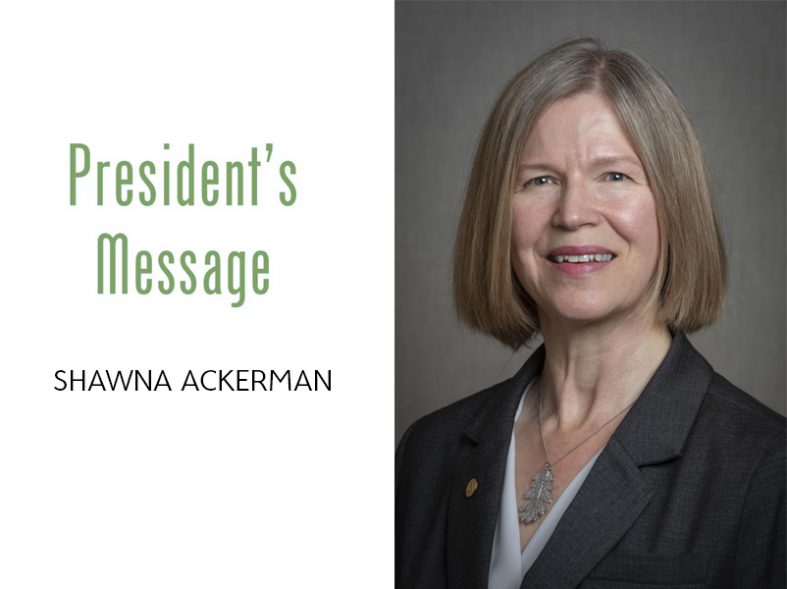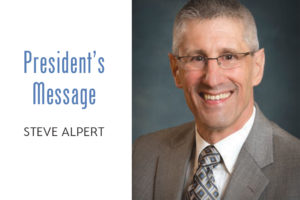By Shawna Ackerman
One issue that has dominated discussions I have been involved in at the Academy and elsewhere this year is the U.S. actuarial profession’s relationship with professional associations outside the U.S. Just as we read daily in news feeds, no country, no profession, and no individual is truly isolated from what happens elsewhere in the world.
The Academy has been in the vanguard in its development of ideas and approaches to representing the U.S. actuarial profession globally while always remembering that we are the U.S. national association, dedicated to serving the U.S. actuarial profession and the public through our public policy and professionalism initiatives and programs.
While we communicate routinely with our members about these issues, the readers of Contingencies are a broader audience, including non-actuaries and policymakers who have told us they find the magazine insightful and entertaining on the range of articles that routinely grace the pages of this magazine.
I think those who read this magazine understand not only how deep and broad are actuaries’ interests but also the depth and breadth of the state-based insurance system in the U.S. that has so effectively protected the public for many decades.
The Academy has long supported both state and federal policymakers in all areas of public policy development who benefit from our unique offerings of objective and unbiased actuarial input whereby we try to make clear the consequences of decisions without advocating for specific outcomes.
In my travel and work for the Academy, I have found that other jurisdictions around the world see “things” much differently than the Academy. They do not enjoy the complexity and specificity of, and the influences on, actuarial practice that have developed in the U.S. over decades. While we can and may agree on certain fundamentals of actuarial science with others throughout the world, the way in which actuaries can and do affect policy are often vastly different.
There are actuarial groups and individual actuaries, both in the U.S. and abroad, that take advocacy positions on all manner of politically charged issues. I find no fault in that—but the Academy’s role has long been different. We reach out to policymakers with objective and independent actuarial input because that is an essential part of the Academy’s mission to serve the public. Put differently, we choose not to advocate in the policymaking process because we believe that an independent and objective voice is the most effective voice given the complexity in which we operate.
Just as our chosen non-advocacy role in the policymaking process differs from other countries and other national actuarial organizations, so the regulation of a national actuarial profession may differ from the path taken by other associations with different missions and goals. The rules and approaches that work in one country, for one national profession, may not work for another.
I see such differences as reflections of how enlightened individuals and organizations can rationally recognize different realities on the ground, hear and consider the views of others, and from that understanding act independently and objectively in the best interests of their public.
Conversely, I have seen those who view actuarial science as a commodity, essentially believing that if all actuaries in the world are held to common education, qualification and standards then an actuarial credential becomes a passport to practice. This clearly does not work in the U.S. where, as noted previously, the complexity of our state-based insurance system provides a specific context for practice. Simply put, the Academy’s goal in understanding and representing the U.S. profession globally must include knowing when to say “no” and when to say “yes.”
The diversity and the interconnectedness of our international community is clearer today than it has ever been. We have opportunities to explore new approaches to acquiring knowledge and sharing experiences leveraging prior excellent work such as the comparative surveys of other countries retirement readiness and health care challenges and direct outreach.[1] As the Academy continues its important work with actuarial associations or supranational organizations outside the U.S., our tradition of respecting diversity and differences of opinion will continue in the pages of this magazine and in other forums. And as the national association for the actuarial profession in the U.S., the Academy will always be dedicated to saying “yes” to doing what’s right for the U.S. profession.
*Retirement Readiness in Three Countries: Who is Ready to Retire? https://www.actuary.org/content/retirement-readiness-three-countries-who-ready-retire
End-of-Life Care in an Aging World: A Global Perspective. https://www.actuary.org/content/end-life-care-aging-world-global-perspective-5 (Last checked 6/17/2019)





